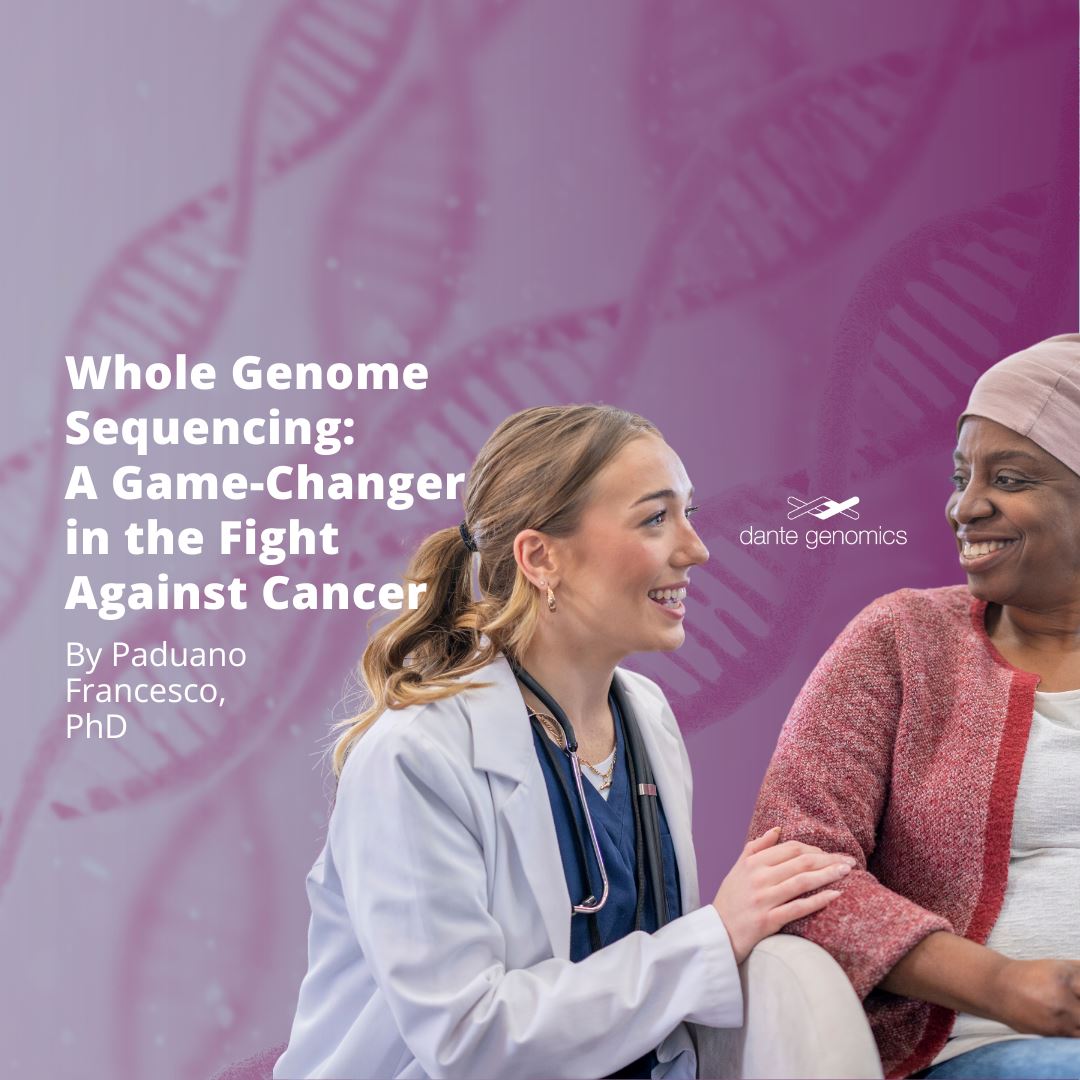
Whole Genome Sequencing: A Game-Changer in the Fight Against Cancer
Share
What is Whole Genome Sequencing and why is it so important in cancer diagnosis and treatment?
Cancer is a complex disease that is driven by changes in the genome. These alterations, commonly referred to as mutations, can trigger uncontrolled cell growth, leading to the development of cancer and its spread through a process known as metastasis. Whole Genome Sequencing (WGS) is a powerful technique that can analyse the entire DNA content of a person. WGS provides a high-resolution view of the genome and can detect both large and small variations that might be missed by other targeted approaches. It’s important to note that WGS can uncover thousands of variations in an individual’s DNA. While most of these variations are harmless, some can increase the risk of developing cancer. If a specific cancer-causing mutation is identified in a patient’s DNA, treatment can be personalized to target that mutation. WGS is currently the most efficient way to build a comprehensive picture of the genomic variation in patients with tumours. With the advent of this technology, there is great potential for genetic counseling, disease treatment and management, and risk assessment.
The Benefits of Whole Genome Sequencing for Cancer Diagnosis
Whole Genome Sequencing (WGS) is the only test that analyzes your entire DNA, providing a complete picture of your genetic makeup. In contrast, other genomic tests only provide limited information based on a fraction of your genome. WGS can identify the majority of changes in your DNA. These changes can range from small alterations to large rearrangements of DNA between different parts of the cell’s genetic material. Several studies demonstrate the feasibility and benefits of analyzing the entire genetic code in patients diagnosed with cancer.
Thus, WGS has the capability to transform the way cancer is diagnosed and treated. By analyzing the entire genome of a cancer patient, doctors can gain a comprehensive understanding of the genetic changes that drive cancer growth. The information obtained through WGS allows for the personalization of treatments to precisely meet the needs of each individual patient.
Personalizing Cancer Treatment with Whole Genome Sequencing
Whole Genome Sequencing (WGS) is a powerful tool that can not only improve cancer diagnosis but also provide valuable insights into how a person’s cancer may develop and respond to treatment. This information is already revolutionizing the way some cancers are treated and has the potential to save countless lives. WGS can identify genetic changes that cause or influence cancer, providing targets for drug development. This includes cancers with limited treatment options, where traditional approaches may have been ineffective.
By analysing a person’s entire DNA, WGS can provide a more complete picture of their cancer and help doctors make more informed treatment decisions. In other words, WGS has the potential to transform cancer care by providing doctors with the information they need to make more accurate diagnoses and develop more effective treatment plans. For example, a study from the Washington University School of Medicine in St. Louis has found that WGS is often more accurate than conventional genetic tests in guiding treatment for blood cancers such as acute myeloid leukaemia (AML) and myelodysplastic syndrome (MSD).
The Future of Cancer Treatment: The role of Whole Genome Sequencing
In the future, WGS is likely to play an increasingly important role in cancer care. As technology continues to advance and become more widely available, it has the potential to revolutionize the way cancer is diagnosed and treated. By providing doctors with detailed information about the genetic changes that drive cancer, WGS can help them develop more effective treatment plans and improve outcomes for patients.
In summary, WGS represents a promising new frontier in the fight against cancer and has the potential to transform the way we diagnose and treat this devastating disease.

Discover the power of Whole Genome Sequencing with Dante Genomics
Dante Genomics, a leading global genomic information company, is transforming the genetic testing industry by offering clinical WGS at an affordable price. Their vision is to sequence your data once and provide you with lifetime access to your genetic information. Your samples will be carefully managed in the USA and Europe (Italy). Very importantly, Dante Genomics takes the privacy of its customers very seriously. They do not work with genomic data and ensure that their customer’s data is never used or sold to third parties, even in aggregate form. Dante Genomics is fully compliant with the General Data Protection Regulation (GDPR). Their tests have an average coverage of 30X, ensuring clinical-grade results by analyzing your entire genome 30 times. For more information about WGS offers from Dante Genomics, please visit the website dantelabs.com.
Take home messages
- Recently, doctors have begun to incorporate genetic sequencing of a limited number of genes into their analysis. However, this approach does not always identify all the important changes that can guide treatment decisions. Only Whole Genome Sequencing (WGS), which involves sequencing the entire genome, can provide a complete picture.
- Decoding the entire genetic code by WGS of an individual diagnosed with cancer reveals potential hereditary cancer risks and can provide a more accurate diagnosis and reveal new treatment options;
- Dante Genomics provides comprehensive and affordable Whole Genome Sequencing (WGS) with personalized interpretation.
By Paduano Francesco, PhD
Resources
Nogrady, B. (2020). How cancer genomics is transforming diagnosis and treatment. Nature, 579(7800), S10-S11.
Hou, Y. C. C., Neidich, J. A., Duncavage, E. J., Spencer, D. H., & Schroeder, M. C. (2022). Clinical whole‐genome sequencing in cancer diagnosis. Human mutation, 43(11), 1519-1530.
Duncavage, E. J., Schroeder, M. C., O’Laughlin, M., Wilson, R., MacMillan, S., Bohannon, A., ... & Spencer, D. H. (2021). Genome sequencing as an alternative to cytogenetic analysis in myeloid cancers. New England Journal of Medicine, 384(10), 924-935.
